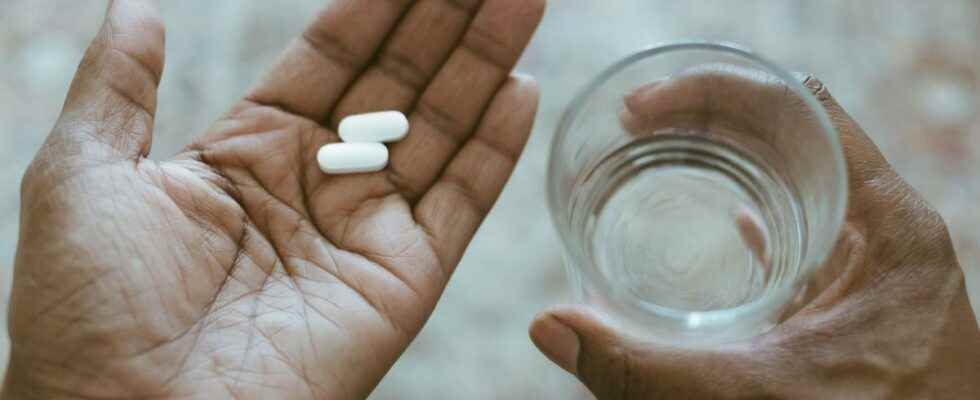Published on
Updated
Reading 2 mins.
A new English study would hold an effective track to reduce the risk of stomach bleeding sometimes caused by the regular use of aspirin.
Aspirin is a very common drug. Its preventive use is particularly used in people at high risk of stroke, heart attack or cancer. However, a problem often worries users: on rare occasions, aspirin, thinning the blood, can cause internal bleeding of the ulcer sometimes present. A solution may well be on the way: a new study, led by experts at the University of Nottingham, has found that the risk of stomach bleeding can be reduced with just a short course of antibiotics. But how does it work?
Neutralize the bacteria responsible for the ulcer
We know that by thinning the blood, aspirin causes stomach ulcers to bleed. But we’ve also known for some time that these ulcers are caused by a particular type of bacteria, Helicobacter pylori. The STAR (Simple Trials for Academic Research) team at the University of Nottingham therefore wanted to find out if a short course of antibiotics could simply eliminate these bacteria in a trial called HEAT (Helicobacter pylori Eradication Aspirin).
To confirm their hypothesis, the team wrote to 188,875 patients who were taking aspirin of which more than 30,000 volunteered. Those who tested positive for H. pylori were randomized to receive antibiotics or placebos (dummy tablets) and were followed for up to 7 years. The trial detected three trends:
- During the first two and a half years, those who received antibiotic treatment were less likely to be hospitalized due to ulcer bleeding than those who received dummy tablets;
- The protection set in very quickly: in those who received placebos (a dummy treatment), the first hospitalization for ulcer bleeding took place after 6 days, compared to 525 days after the antibiotic treatment;
- Over a longer period, the protection seems to fade. However, the overall hospitalization rate for ulcer bleeding was lower than expected.
These results are published and can be consulted in the journal The Lancet.
Bleeding reduced by antibiotics
A short course of antibiotics that actually reduces the risk of ulcers and bleeding? The positive conclusion of this test could well facilitate the daily life of the persons concerned. For Professor Chris Hawkey, first author of the study,
“Aspirin has many benefits in terms of reducing the risk of heart attack and stroke in people at increased risk. There is also evidence that it is able to slow certain cancers. The HEAT trial is the largest study of its kind based in the UK, and we are pleased that the results have shown that bleeding from ulcers can be significantly reduced after a week-long course of antibiotics. The long-term implications of the results are encouraging in terms of safe prescribing.”
The results of the trial will be presented at the scientific meeting of the UEG (United European Gastroenterology) in Vienna.
